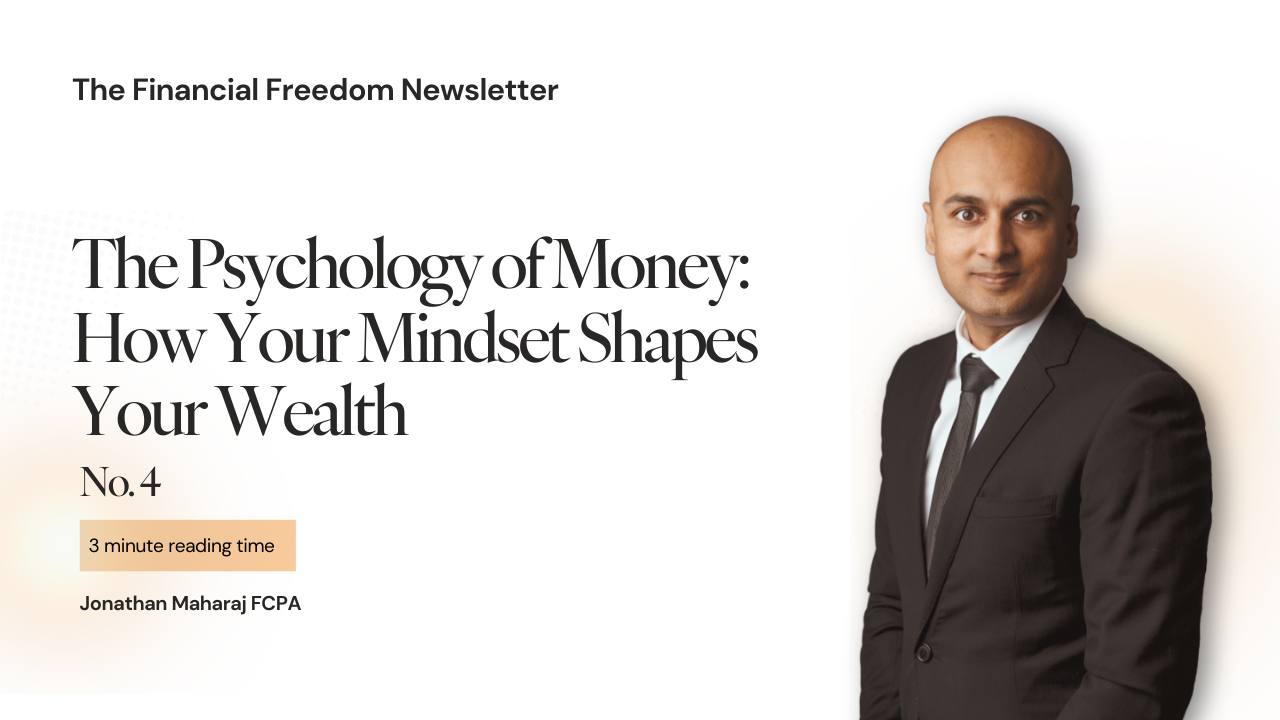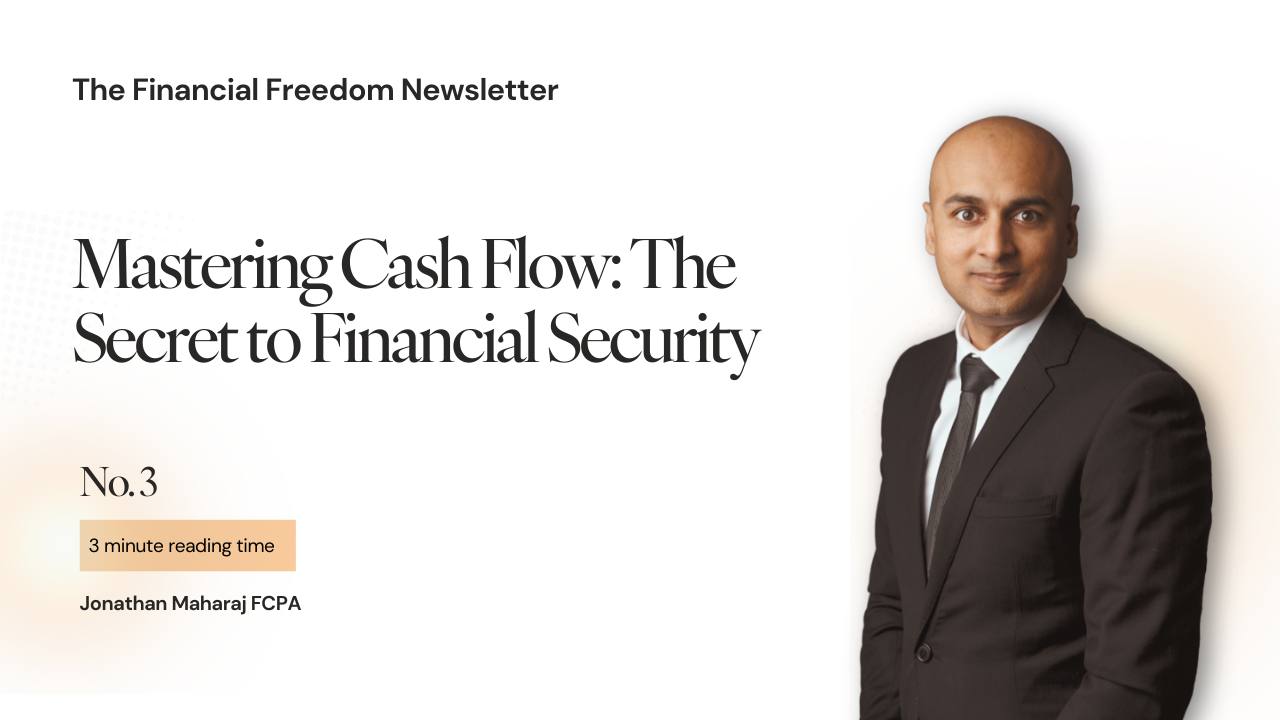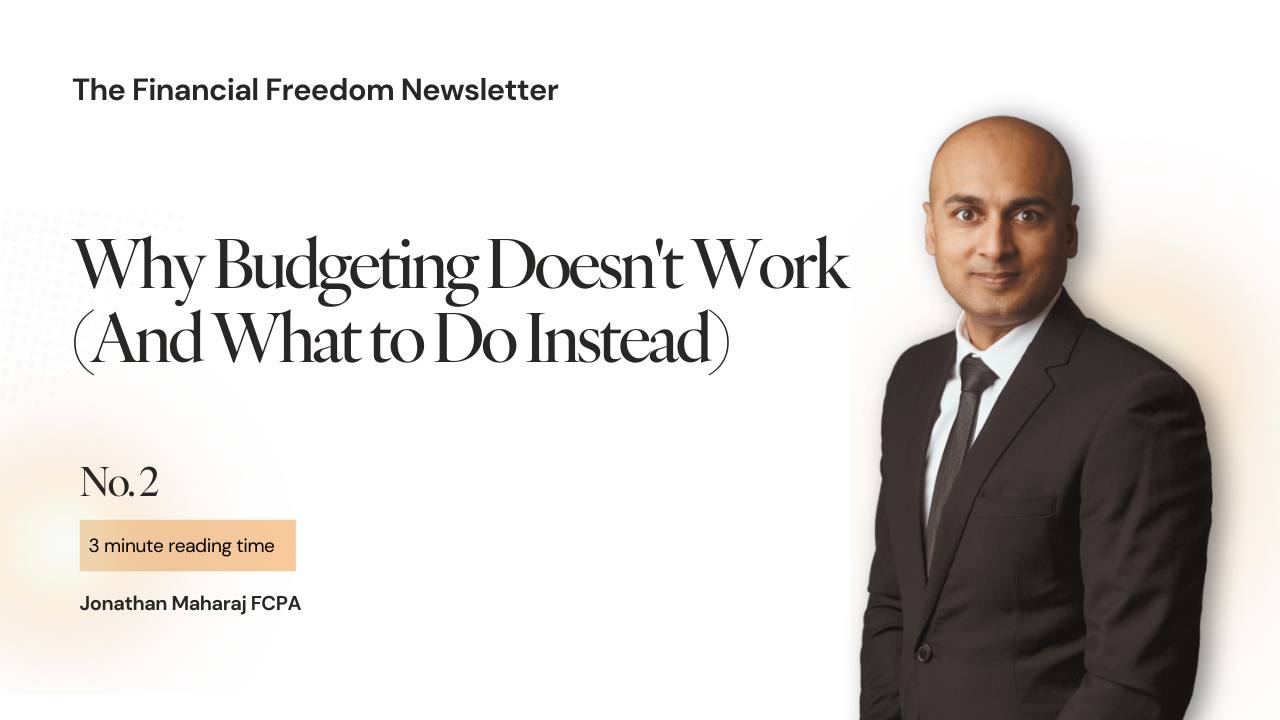5. Why Saving Money Alone Won’t Make You Rich
Most of us were raised with the belief that if we saved diligently, we’d be financially secure. Save your pocket money. Save a percentage of your paycheck. Save for retirement.
It’s a good message. But it’s also incomplete.
Saving is a crucial part of a healthy wealth-building strategy, but it’s no longer enough. If you’re relying solely on saving money to build wealth, you're likely falling behind. The world has changed, and your financial strategy needs to change too.
This week, we’ll explore why saving alone won’t make you rich and what you need to start doing differently.
Risk versus Reward
Let’s start with the obvious: saving is safe and dependable. There’s a low risk of losing your money in a volatile market, no need to understand investment strategies, and no sleepless nights (unless your bank collapses).
But here’s the downside - there’s also very little reward.
In today’s economy, the average interest rate on a savings account is low. Meanwhile, inflation rates continues to rise between 2 to 4 percent annually, and at times even higher. That means if your money is sitting in a traditional savings account, it’s slowly losing value every year.
For most people, that gap between interest rates and purchasing power lost isn’t obvious until it’s too late. You might feel like you’re doing the right thing by saving, but in reality, you’re just standing still or quietly moving backward.
The solution isn’t to stop saving. The solution is to adapt your strategy.
The wealthy do not become wealthy by saving alone. They invest in assets. They grow their money by putting it to work in the stock market, in real estate, in businesses, and in themselves.
Why Saving Alone is a Limitation
Here are three reasons why saving alone will never make you truly wealthy:
-
Savings don’t outpace inflation
Say the average inflation rate is about 2 to 4 percent annually. If savings earn 1 percent interest and inflation is at 3 percent, your real return is negative. -
Opportunity cost is real
Every dollar that sits idle is a dollar that could be compounding. In investing, time is your greatest asset. The longer your money is in the market, the greater the impact of compound growth. -
Wealth requires growth, not just accumulation
Saving is about accumulation. Investing is about multiplication. A saver might accumulate $100,000 over a decade. An investor could turn that same $100,000 into $200,000 or more without working any harder.
A good example is Ted Weschler, one of Warren Buffett’s key lieutenants at Berkshire Hathaway. Weschler turned a $70,000 retirement account into $264 million over 28 years. Not through saving, but by investing with discipline and patience. Weschler emphasizes simplicity and consistency in his approach. (Investopedia, 2023).
Contrast that with someone who saves $5,000 every year for 30 years in a regular savings account. At 1 percent interest, they would have a low rate of growth. But if invested at an average 5 percent return, that same $5,000 per year would grow faster.
Saving is important. But it's not powerful on its own.
Key Takeaways
To move beyond just saving and start building real wealth, try this:
-
Keep an emergency savings fund - usually 3 to 6 months of living expenses.
-
Automate investments - set up regular monthly transfers into a diversified investment portfolio.
-
Use tax-advantaged accounts to boost your long-term growth.
-
Start small, but start now - compound growth rewards consistency over time, not large lump sums later.
-
Learn about asset allocation - spreading money across different types of investments helps manage risk.
Saving is where financial stability begins, but it’s not where wealth is built. Investing is how your money begins to work for you.
So start small, stay consistent, and give your money the time and opportunity to grow.
That's all for this week.
See you next Friday.
- Jonathan M.
References
Investopedia. (2023). The lesson from a Buffett protégé: How a $70,000 IRA grew to $269 million. Retrieved from
https://www.investopedia.com/the-lesson-from-buffett-protege-8771623
The Australian. (2023). A diversified portfolio is always worth the effort. Retrieved from
https://www.theaustralian.com.au/business/a-diversified-portfolio-is-always-worth-the-effort/news-story/84eb7be68e6f2f9cc775d049ef72796d
Disclaimer: This newsletter is general information only and is not financial advice. Always do your own research and consult a professional about your circumstances.



